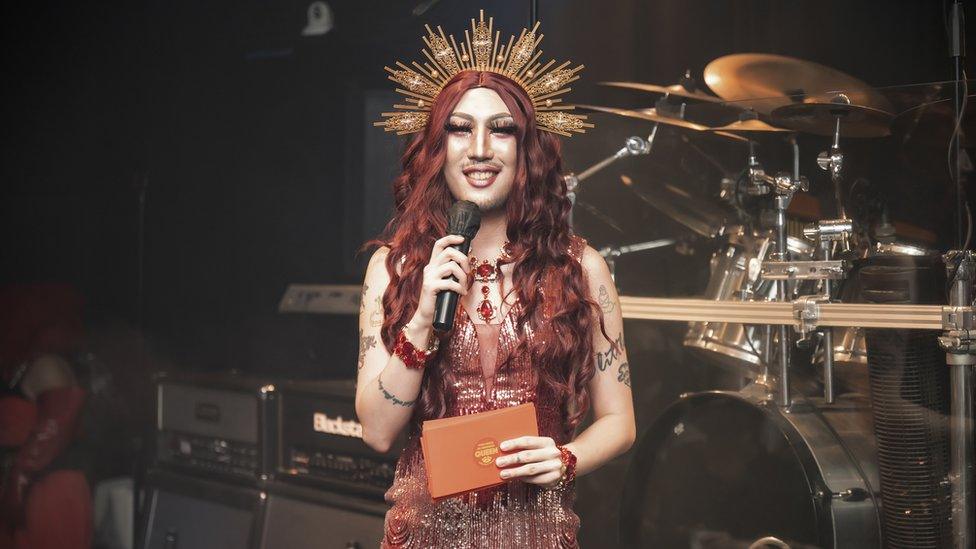Spain’s LGBT matador: 'More will come out because of me'
- Published
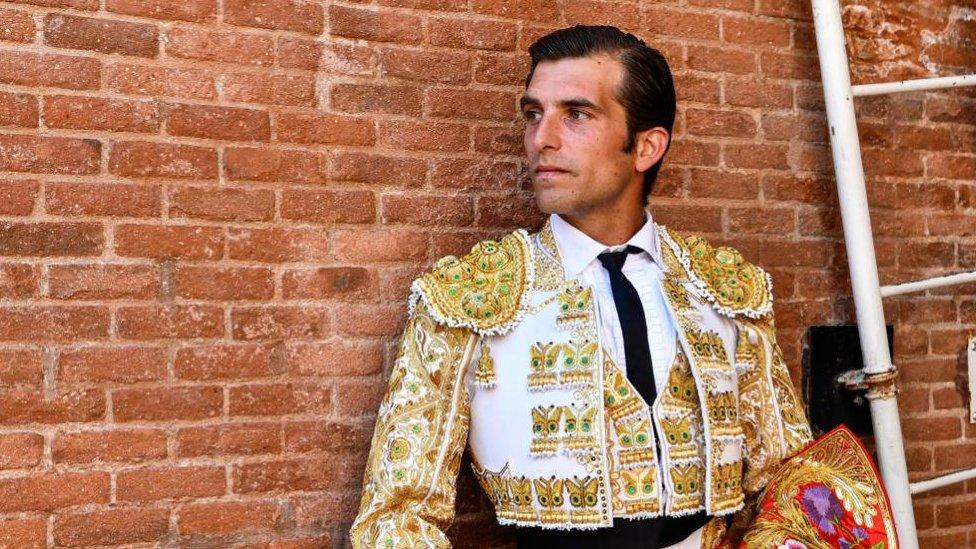
Mario Alcalde is Spain's first openly LGBT matador
Spain's first openly LGBT matador believes more bullfighters will come out, after revealing he is pansexual.
"There have always been gay people in bullfighting, but they didn't say anything," says Mario Alcalde.
I meet the 31-year-old on a remote farm near the Portuguese border, where he is having a practice session for one of Spain's most notable, and notorious, traditions.
Dressed in a small black waistcoat and skin-tight grey trousers, he looks every inch the bullfighter.
But Mario Alcalde also works full-time as a baggage handler at Madrid-Barajas Airport and lives with his family. Bullfighting only pays big bucks for an elite few.
He's now embracing a boost to his profile after telling Spanish newspaper El Mundo he is pansexual - someone who is attracted to another, regardless of their sex or gender.
It was a spontaneous decision to come out, he says. Not even his family knew.
"The idea came to me… artists are very spontaneous. It came from my heart."
The matador as an artist is an established idea within the bullfighting community. Supporters see events as a noble contest where man is pitted against beast.
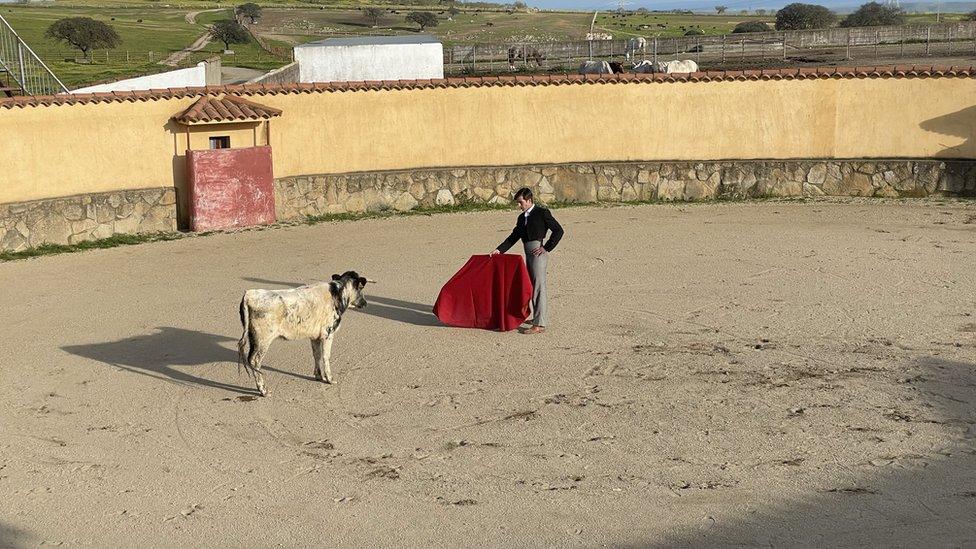
Bullfighting is associated far more with Spanish conservatism than the contemporary gay scene
But this is a blood sport, banned in most countries. It has even been outlawed in parts of Spain.
Its fierce critics, of which there are many, say it's a cruel, prolonged and sadistic spectacle in which a bull typically has no chance of survival.
It's a cultural segment of old Spain, where flamboyance meets machismo, and associated far more with Spanish conservatism than the contemporary gay scene.
"I thought there was going to be a feeling against it but people are accepting it and in the best way possible," says Mario.
He puts the fact that he's Spain's first out LGBT matador down to perceptions that bullfighters came "from the countryside" rather than "more globalised" cities.
Now he hopes to establish a "Peña", or meeting place, for supporters of bullfighting in the heart of Madrid's LGBT+ community of Chueca.
"Perfect!" says Antonio in the Chueca's main square, right by a metro sign decorated with the LGBT rainbow flag.
"I'm glad he has come out. This will take the 'machos', as we call them, down a peg or two."
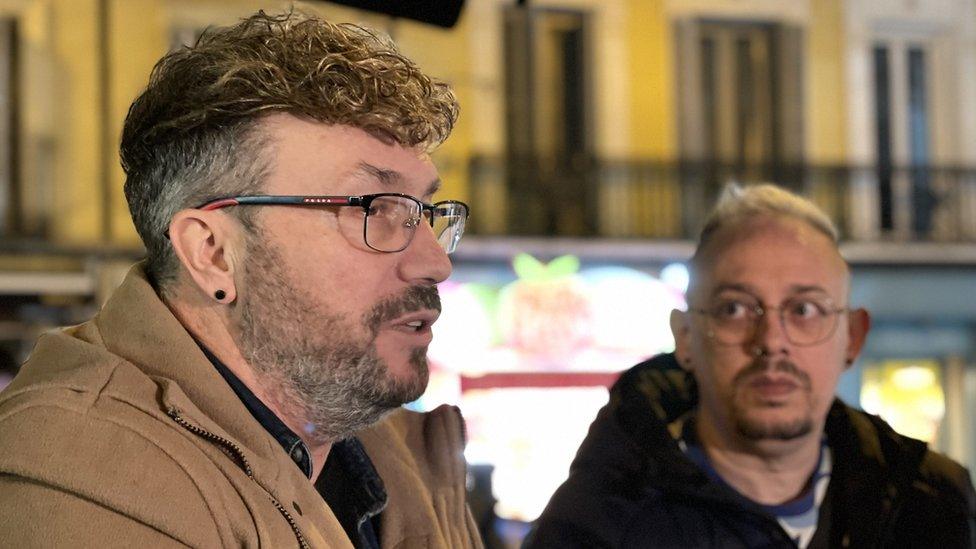
Juan and Juan both welcome Mario coming out
Married couple Juan and Juan are also pleased to hear that a matador has come out, but don't quite see eye to eye on the broader issue.
"I've been to the bulls as a kid and I like it and I know what the event means," says Juan.
His husband is less of a fan. "I'm not saying they can't set up a bullfighting gay place, I just don't think it fits the area. The whole bullfighting thing is very conservative."
His views are echoed by a table of younger LGBT+ people who are far less forgiving of a tradition that has dwindled in popularity.
"The issue with bullfighting is that we confuse an animal and lead it to death in a tragic way," says Maria. "Bullfighting is sustained because it's a tradition. If this idea were new, I doubt it would be approved."
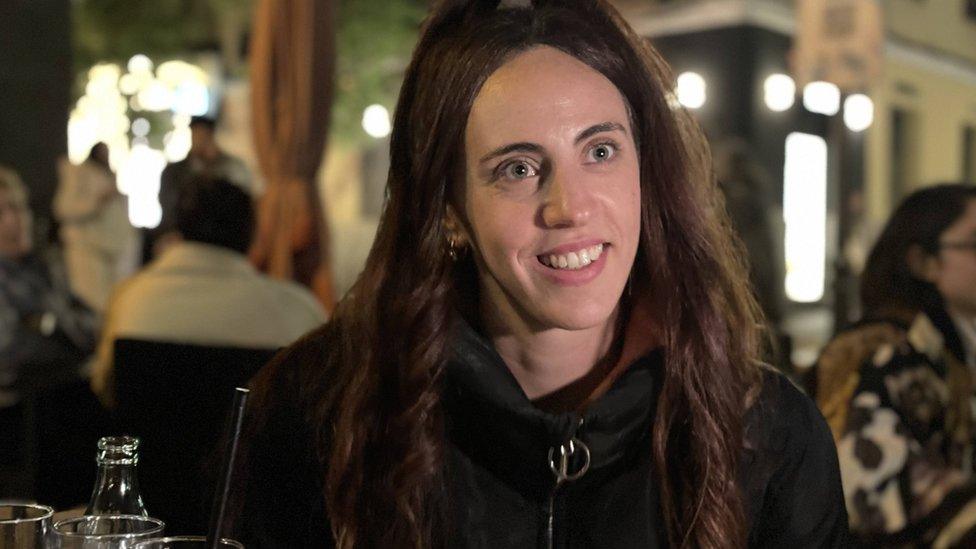
Maria says a bullfighting Peña could be controversial in Chueca
Alongside her, Fran sees something of a contradiction in being a bullfighting supporter as well as being part of the LGBT community, although ultimately "everyone is free to have their own beliefs".
Bullfighting audience numbers have been in decline for decades
Despite an uptick after the Covid pandemic, notably driven by younger people, Spanish culture ministry statistics show that just under 2% of the population went to a bullfight in the 2021-2022 season.
Mario Alcalde strongly resists the suggestion that his passion is increasingly irrelevant and out of step with modern sensibilities.
"There is no decline," he says, adding: "Society's sensibilities do not fit the reality of life."
"Wanting to cover up death is wanting to cover up everything. In order to truly live you have to know that you are going to die."
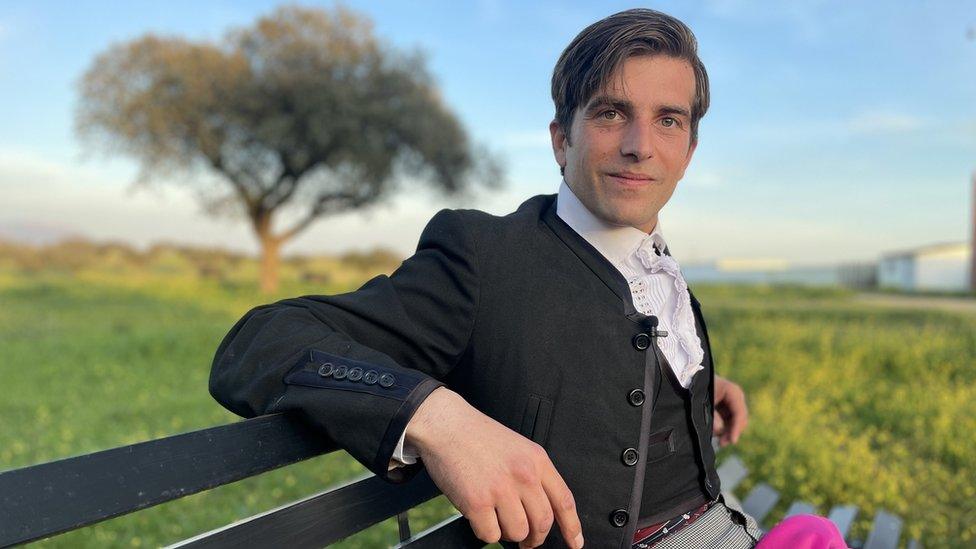
Mario is a full-time airport baggage handler outside of his work in bullfighting
For today's training, Mario faces a young cow as he holds a pink cape and weaves around the ring before sometimes running to get behind a walled barrier for safety.
The animals today aren't killed but they are injured by a man on horseback who uses what appears to be a type of pike pole.
By the end of the session Mario's trousers are stained by blood that is not his own.
Despite repeated challenges about the inherent violence towards animals that bullfighting involves, he's defiant to the last.
"If I had to live another life, I wouldn't mind being a brave bull and dying like a brave bull."
It's a staunch, traditional defence of an activity that Mario Alcalde now aims to modernise and diversify, while opponents hope it is a fading shadow of Spain's past - regardless of a matador's sexuality.
- Published14 July 2023
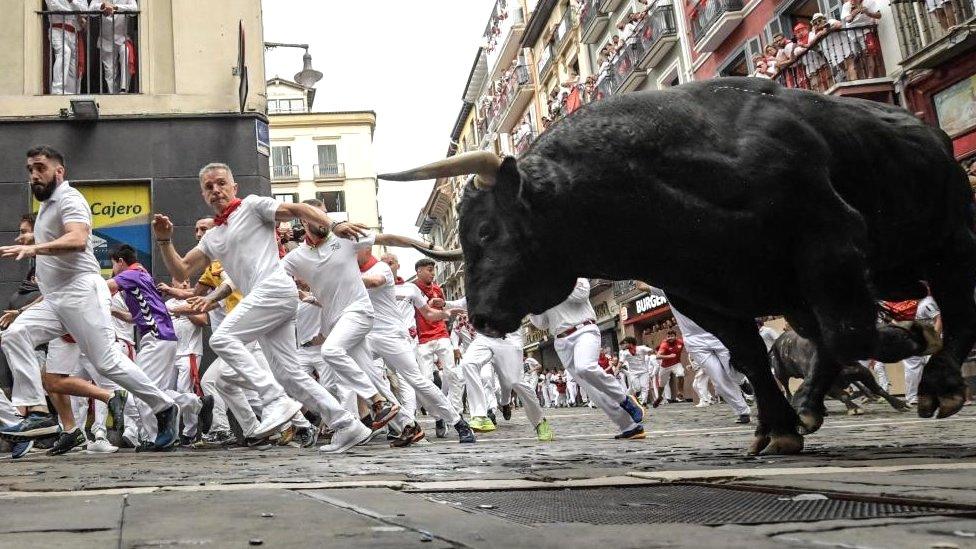
- Published27 June 2020
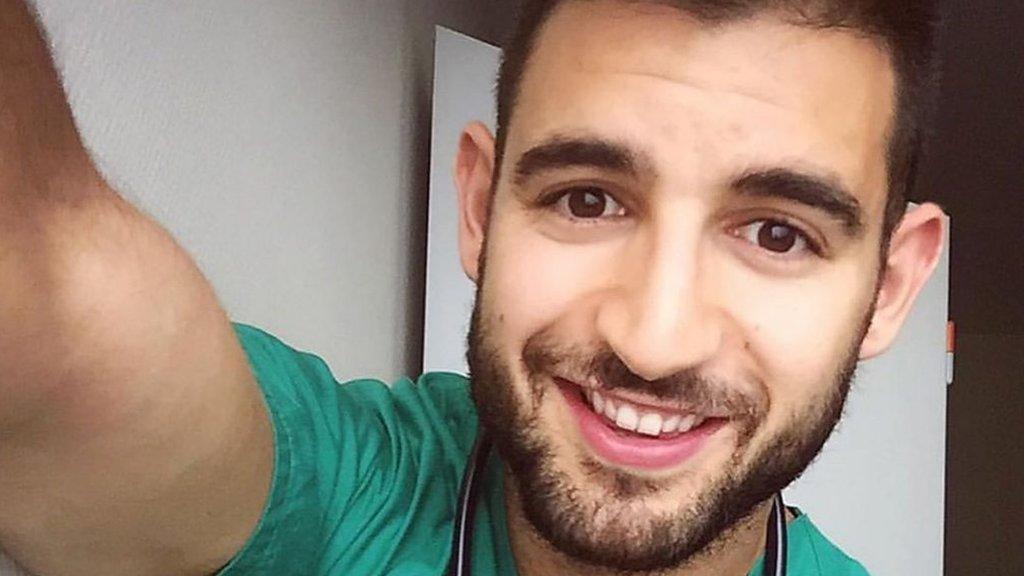
- Published7 January 2023
